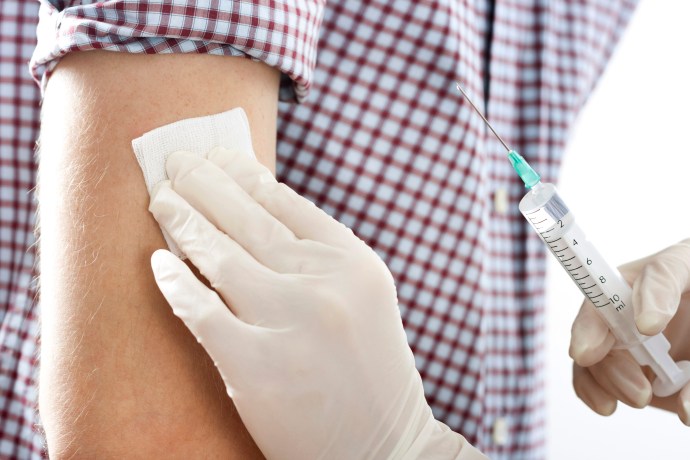New York broke a record for confirmed influenza cases in the week ending Jan. 27 with more than 11,600 cases reported, according to a Northwell Health news release.
Northwell said on Tuesday that in the previous seven days, 12 Northwell hospitals saw more than 10,500 patients with flu-like symptoms, 2,700 of whom were admitted for inpatient treatment.
During last year’s flu season there were 12,912 flu-related hospitalizations across the state, according to the Nassau County Department of Health.
“Flu season typically peaks on the East Coast in late winter, so it’s not too late to get vaccinated,” Nassau County Department of Health Commissioner Dr. Lawrence Eisenstein said in a statement in January.
Eisenstein and Nassau County Executive Laura Curran urged all residents over six months old to get vaccinated.
The number of confirmed cases of influenza in New York is the highest since the Department of Health began reporting them in 2004, according to a statement from Gov. Andrew Cuomo.
In January, Cuomo signed an executive order that allows pharmacists to give flu vaccines to children ages 2 to 18.
“With flu cases reaching epidemic proportions in New York, we must do everything in our power to fight this virus and keep New Yorkers safe,” Cuomo said in a statement. “Once again, I urge all New Yorkers to help us combat this quick-spreading strain of flu and make sure they and their loved ones are vaccinated.”
According to the Centers for Disease Control and Prevention, vaccination should continue throughout flu season.
In an effort to remedy the issue, Northwell Health has established a biosurveillance system to track and respond to the large volume of cases, according to the release.
The dashboard, developed by Stanley Cho, a senior data analyst at Northwell’s Krasnoff Quality Management Institute, in collaboration with the health system’s emergency operations staff, gives the Northwell staff a proactive tool to prepare for and respond to a surge in flu cases, according to the release.
The system tracks both the number of patients who tested positive for the flu and presented with flu-like symptoms, as well as capturing the strain of the virus and information about the patient such as age, sex and ZIP code.
“The new flu surveillance dashboard gives Northwell the ability to see what’s going on in near real time,” Mark Swensen, an emergency management coordinator at Northwell who helped develop the system, said in the release. “This is an important tool that helps us in terms of planning and managing patient care.”
The system also allows Northwell to manage the distribution of resources and supplies needed to treat patients and protect staff.

